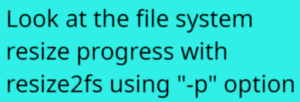Let’s explore the differences between a shell built-in and a shell keyword.
Shell Built-in
A built-in command is hardcoded into the shell, executing faster than external commands since there’s no need to load an external program. When compared to other commands that aren’t built-ins, a shell built-in executes more efficiently.
To list all Shell Built-ins:
compgen -b
Shell Keyword
Similar to a built-in, a keyword is hardcoded into the shell. However, unlike a built-in command, a keyword isn’t a command but a reserved word with a specific meaning in the shell. Using a keyword as a variable within the shell isn’t permissible due to its special reserved status.
To list all Shell Keywords:
compgen -k.
Example for Shell Built-in and Keyword
Let’s delve into the distinction between the shell built-in “single square bracket [” and the shell keyword “double square brackets [[ ]]”.
# Using single square bracket “[“ (equivalent to “test” command)
#!/bin/bash -e
string="my learnings guru"
if [ "my learnings guru" = $string ]
then
echo "strings are equal"
else
echo "strings are not equal"
fi
In the above example, we are using single square bracket “[“, which is a shell builtin and thus the shell treats this single square bracket “[” as a command with the following arguments
1) my learnings guru
2) =
3) my
4) learnings
5)guru
6) ]
The “]” denoting the end of the test condition, serves as the last argument for “[“.
Unquoted variable usage within the if statement causes the $string variable to split into three separate strings, leading the string comparison operators (=) to throw an error ([: too many arguments). This error results from receiving more than one string for comparison on the right-hand side.

The solution to this error involves quoting the $string variable within the if statement. By doing so, word splitting doesn’t occur, keeping the $string variable value intact as a single string inside the if statement.

.
# Using double square bracket [[ ]]
Double square brackets [[ ]] serve as examples of bash shell keywords.
These keywords hold a special significance within the shell. When the bash script is parsed, the shell identifies [[ and seeks the corresponding closing ]]. Any code enclosed within these brackets is handled uniquely as per its intended treatment.
It’s unnecessary to quote $string within the double square brackets. The shell recognizes these constructions as keywords, treating their contents differently compared to regular variable usage.





